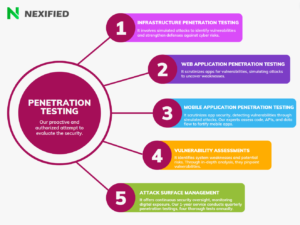The UK’s Product Security and Telecommunications Infrastructure (PSTI) Act, enacted on 29th April 2024, marks a significant stride in enhancing cybersecurity, data privacy, and consumer protection. This legislation targets the resilience of consumer connectable products against cyber threats, ensuring they adhere to stringent data protection protocols.

Through its comprehensive measures, the PSTI Act underscores the importance of robust product security and a fortified telecommunications infrastructure, paving the way for businesses to prioritize data privacy in the digital age. It delineates clear responsibilities for manufacturers, importers, and distributors, setting a new benchmark in cybersecurity and data protection efforts.
Background and Objectives of the PSTI Act
Historical Context and Legislative Timeline
The PSTI Act in the UK, specifically “Part 1 Product Security,” is the result of more than ten years of government efforts to strengthen product security. Initial talks started about a decade ago and led to the establishment of voluntary guidelines in 2016. The PSTI Act reached a major milestone when it received Royal Assent and was enacted into law on December 6, 2022. It officially came into effect on April 29, 2024.
Core Objectives of the PSTI Act
The primary aim of the PSTI Act is to fortify the security of consumer connectable products against cyber threats, thereby safeguarding individual privacy and enhancing overall security. This is achieved through several strategic measures:
- Mandatory Compliance for Manufacturers: Manufacturers of covered connected technologies must now provide self-attestation to confirm their compliance with established security measures.
- Enforcement by OPSS: The enforcing body designates the UK Office for Product Safety and Standards (OPSS) to ensure adherence to the stipulations of the PSTI Act.
- Elevated Standards for Data Management: The Act sets higher benchmarks for data handling, storage, and cybersecurity across various sectors, influencing not only domestic practices but also international trade.
- Promotion of Innovation: By establishing a secure and trustworthy online environment, the PSTI Act encourages innovation within the digital and technology sectors.
- Global Cooperation: The Act underscores the importance of high cybersecurity standards, fostering international collaborations and setting a precedent for global consumer protection and data privacy norms.
These objectives collectively enhance the UK’s cybersecurity framework, making a significant impact on both national and international levels in terms of product security and telecommunications infrastructure. Read more Here🔗
Key Provisions of the PSTI Act
The PSTI Act introduces a comprehensive framework for enhancing product security and telecommunications infrastructure, focusing on consumer connectable products. This section delineates the key provisions of the PSTI Act, highlighting the responsibilities and requirements for various stakeholders in the supply chain, from manufacturers to distributors.
Obligations Across the Supply Chain
- Manufacturers, Importers, and Distributors: All entities must ensure that they comply with the PSTI Act, including adhering to security standards and providing a statement of compliance.
- Retailers and Distributors: You must verify and ensure that all connectable products have appropriate compliance documentation before making them available in the market.
Security Requirements
- Default Passwords: The Act prohibits the use of universal default passwords, mandating that all connectable products must feature unique and undefinable passwords.
- Vulnerability Reporting: Manufacturers must establish a public point of contact to report vulnerabilities, ensuring they address security issues promptly and efficiently.
- Transparency in Security Updates: Clear communication regarding the minimum period for which security updates will be provided must be available to consumers.
Compliance and Enforcement
- Self-Attestation by Manufacturers: Manufacturers must provide a self-attestation confirming their adherence to the PSTI Act’s security measures.
- Enforcement by OPSS: The UK Office for Product Safety and Standards (OPSS) enforces compliance and has the power to impose penalties for non-compliance, which can be as severe as £10 million or 4% of the company’s global turnover.
Specific Regulations and Requirements
- Regulations 2023: Detail specific security requirements that manufacturers of relevant connectable products must comply with, as outlined in Schedule 1 to the Regulations.
- Documentation and Compliance Evidence: Manufacturers and importers must include necessary information in the statement of compliance as specified by Regulation 7, with Regulations 8 and 9 outlining the retention requirements for compliance documentation.
Product Scope and Exceptions
- Applicability: The PSTI Act applies to “relevant connectable products,” which include internet-connectable and network-connectable devices, excluding specified exceptions such as medical devices and certain IT equipment.
- Exceptions: The Act’s requirements exclude specific products like electric vehicle charging points and certain tablet computers.
This comprehensive set of provisions under the PSTI Act aims to significantly elevate the security standards of connectable products while ensuring robust consumer protection and fostering a safer digital environment.
Impact and Implications for Businesses
Compliance Costs and Development Challenges
- Increased Costs and Development Time: Adhering to the PSTI Act mandates, businesses, particularly B2B technology vendors, face increased costs and extended development timelines. This is due to the need to integrate advanced security features from the design phase itself.
- Security by Design: The requirement for ‘security by design’ alters traditional product design and development processes, necessitating additional resources and expertise.
- Interoperability Issues: The implementation of specific security protocols may lead to interoperability challenges with existing systems, requiring further adjustments and testing.
Corporate Response and Strategies after PSTI Act
- Proactive Compliance Efforts: Major companies like Brother, Canon, Epson, HP, Kyocera, Lexmark, Sharp, and Xerox are actively working towards aligning their products with the PSTI Act’s requirements. This includes ensuring unique default passwords, regular firmware updates, and detailed product support period information.
- Regulatory Complexity: The PSTI Act adds a significant layer of regulatory complexity, particularly affecting providers of digital consumer goods in the EU and UK. Businesses must navigate these regulations to avoid severe penalties.
Potential Consequences of Non-Compliance
- Severe Penalties: Businesses risk facing substantial fines up to £10 million or 4% of global annual turnover for non-compliance, along with potential daily fines, product recalls, and reputational damage.
- Enforcement Actions: The UK Office for Product Safety and Standards (OPSS) strictly enforces compliance, with the authority to take significant enforcement actions against non-compliant entities.
Adaptations by Specific Sectors
- Print Device Space Adaptations: B2B technology vendors in the print device sector need to establish robust processes to handle the additional workload imposed by the PSTI Act. This includes comprehensive vulnerability reporting mechanisms and extended support for security updates to comply with the new regulations.
By addressing these challenges and adapting to the new requirements, businesses not only comply with the PSTI Act but also enhance their overall cybersecurity posture and consumer trust in their products.
Future Developments and Compliance Strategies in Compliance with PSTI Act
Monitoring and Preparing for the EU Cyber Resilience Act
- Anticipated Implementation: Businesses should actively monitor the progress of the EU Cyber Resilience Act, which is expected to be enforced three years after its official enactment. This timeline provides organizations with a critical period to align their cybersecurity strategies and product designs with the forthcoming regulations.
- Strategic Compliance Planning: It is essential for businesses to begin preparing early by assessing their current cybersecurity measures and identifying areas that require enhancement to meet the new standards set by the EU Cyber Resilience Act. This proactive approach will help mitigate risks associated with non-compliance.
- Integration with PSTI Act Requirements: Companies must consider how the stipulations of the PSTI Act will interact with those of the EU Cyber Resilience Act. This dual compliance strategy should focus on synergies between the two regulatory frameworks to streamline processes and ensure efficiency.
- Educational Initiatives and Training: Organizations should invest in comprehensive training programs to educate their workforce about the implications of these acts. Understanding the legal and technical requirements is crucial for effective implementation and compliance.
- Technology and Infrastructure Investment: To comply with the upcoming regulations, significant investment in technology upgrades and cybersecurity infrastructure may be necessary. This includes advanced security software, enhanced data protection tools, and robust systems for monitoring and reporting cyber threats.
By focusing on these strategic areas, businesses can not only ensure compliance with the PSTI Act but also prepare effectively for the integration of the EU Cyber Resilience Act into their operational and security frameworks.
Ensure PSTI Compliance with a Single Click – Get Your Pentest Now!
FAQs
What is the UK PSTI Act?
The UK Product Security and Telecommunications Infrastructure (PSTI) Act, which becomes effective on April 29, 2024, establishes a new cybersecurity framework for internet-connected and network-connectable consumer products. Detailed information about the regime and the products it covers is available in our previous overview.
What are the fines associated with non-compliance with the UK PSTI Act?
Manufacturers who fail to comply with the UK PSTI Act may face significant financial penalties. The maximum fine stipulated by section 36 of the Act is £10 million or a greater amount depending on the specific circumstances of the non-compliance.
Who oversees cybersecurity regulation in the UK?
The National Cyber Security Centre (NCSC) is responsible for aligning cybersecurity requirements with best practices and ensuring consistency across various regulations in the UK. Additionally, the NCSC provides support during significant cybersecurity incidents, which may be governed by specific regulations.
What cybersecurity legislation exists in the UK for information security?
In 2018, organizations that provide critical services implemented the UK Network and Information Systems (NIS) Regulations to enhance their cybersecurity. Companies that do not implement effective cybersecurity measures risk incurring fines of up to £17 million for non-compliance.

